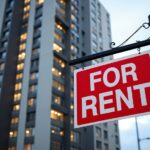The National Association of Realtors (NAR) has released its 2025 REALTORS Residential Sustainability Report, finding that sustainable features, particularly those that reduce costs or offer financial savings, are increasingly influencing home searches and remodeling decisions.
For the study, NAR surveyed its residential-focused members about sustainability issues facing the industry, concluding that more than two in five agents (42%) worked with a property that had green features over the past year.
Client questions about energy-efficiency are becoming more common, though still not widespread. The share of respondents who said clients never ask about upgrades dropped sharply to 29% from 57% last year. Rarely is now the most frequent response at 42%, up from 7% in 2024. Another 21% said clients ask sometimes, and 6% said always/often.
“Housing affordability continues to challenge homebuyers, so sustainability can sometimes be pushed to the back burner as buyers search for the ideal home,” said Jessica Lautz, NAR Deputy Chief Economist and VP of Research. “However, many still seek sustainable home features to reduce their environmental impact as well as heating, cooling, and commuting costs.”
Key findings of the study included:
- Energy-efficiency interest on the rise: Of those polled, 42% said clients rarely ask about energy upgrades, a steep rise from 7% in 2024. Those reporting that clients never ask declined from 57% to 29%.
- Analyzing MLS data: Forty-four percent said their MLS includes green data fields, but nearly half (47%) of those with access do not use them.
- Narrowing down features: The most important green home features for clients include windows, doors, and siding, with 37% rating these features as “very important.”
- Distance matters: Of those polled, 30% rated proximity to frequently visited places as very important, followed by commute time (29%) and access to major roadways (26%).
- Appraiser education: Seventy-three percent of respondents were unsure whether local appraisers were properly educated on the value of sustainability features, and 56% were unsure whether appraisers recognize the value of these features in valuations.
- Education on energy-efficiency: The most cited sustainability knowledge challenges were understanding how solar panels impact transactions (58%), and valuing homes with solar panels (52%).
- Green initiatives yielding discounts: Nearly half of survey respondents (47%) said financial incentives, such as tax credits or rebates, would increase the demand for sustainable homes the most, followed by higher resale value (31%) and consumer awareness of energy cost savings (30%).
- Ignoring climate risk: The majority (58%) of respondents reported that fewer than 25% of their clients consider climate or environmental risk during purchase decisions.
- Popularity grows for green: More than two in five real estate agents have worked with green properties, and 42% of respondents had been involved with a property with green features in the past year.
- Time on the market: Thirty-four percent of respondents said they believed homes with green certifications, such as LEED, Energy Star, or NGBS, spent neither more nor less time on the market.
“Some homeowners may need to turn to remodeling upgrades to embrace sustainability, particularly as the age of America’s housing stock increases due to persistent underbuilding,” Lautz added.
Click here for more on NAR’s 2025 REALTORS Residential Sustainability Report.
Renter Demand to Go Green on the Rise
As NAR analyzed the single-family home market, renters continue to explore their housing opportunities in today’s landscape, and an increasing number of property managers are finding they must adjust on the fly to keep pace with renter expectations.
SmartRent Inc. has released the results from a recent survey focused on energy management trends across rental housing. Conducted in partnership with Morning Consult, the survey found that renters are increasingly prioritizing energy-efficiency and cost-saving technologies when choosing a home.
As utility costs continue to rise–the price of electricity alone is up 34% since 2020—92% of survey respondents said that reducing their monthly utility expenses is “very important” or “somewhat important” when it comes to choosing a place to live. Sustainability is also a strong motivator, with 75% of renters polled stating that it is important to them to reduce their environmental impact.
“Renters expect property management companies to help limit their utility bills through the use of smart home solutions and energy-efficient property technologies,” said Frank Martell, President and CEO of SmartRent.
More than 63% of survey respondents reported experiencing a utility bill increase over the last year, with 35% of those who saw an increase reporting hikes of more than $51 per month. An additional 76% of respondents are “very concerned” or “somewhat concerned” about their utilities increasing over the next year, adding a layer of economic stress that they are eager to mitigate.
Only 48% of survey respondents feel their current property manager effectively communicates about their unit’s energy usage, and just 44% believe their property manager effectively communicates and cares about helping residents reduce utility costs.
Approximately 32% of survey respondents in SmartRent’s study said they would be willing to pay more for rent if reduced utility costs meant their overall monthly spending remained the same. An additional 33% said they would pay more in rent if the unit was energy-efficient and offered consistent savings.






